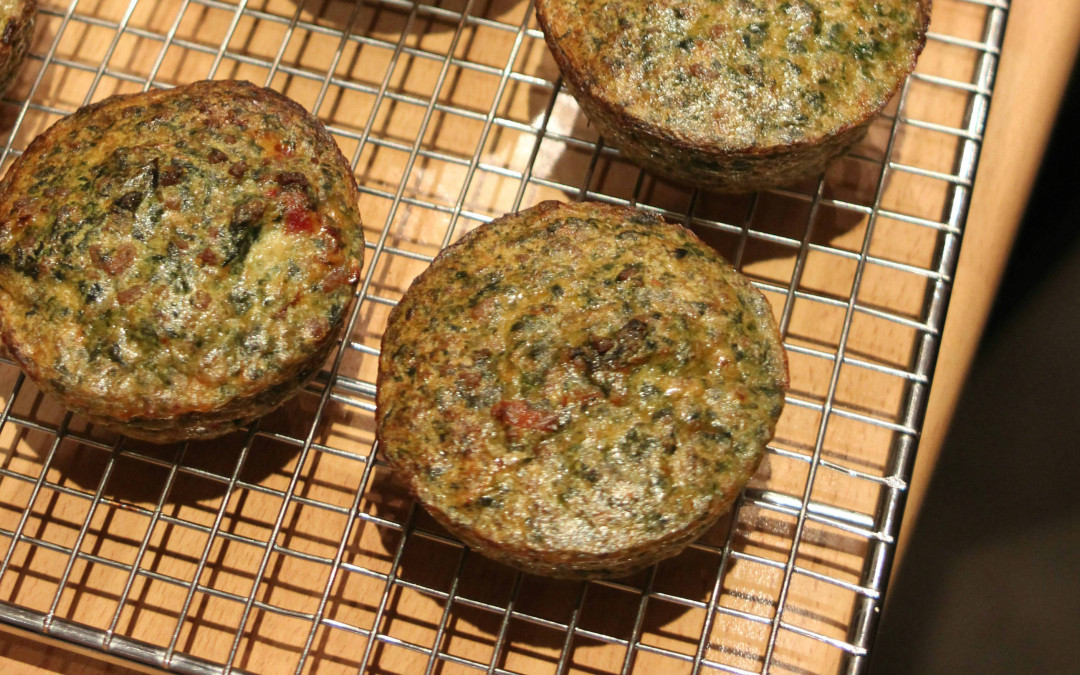There are many great books that I have recommended – see over in the Resources section for further information – but I wanted to dedicate some time talking about Grain Brain as it is a relatively new and generated much debate in the ancestral health scene upon its release.
I first heard of Dr Perlmutter after listening to this fantastic discussion with Robb Wolf. I was very interested in what he had to say and like many others, I was intrigued to hear his advice to limit carbohydrates to around 60g per day for optimum brain health. Since eating a more traditional foods diet, I am always interested to read about the food/brain/gut connection as I have seen such fantastic improvements and want to find out more.
Of course in addition to this – and like many others – I am concerned about the rising number of people suffering with dementia. This is something that I not only find sad and worrying, but I am interested in the theory that dietary elements are significant in the sudden rise of this illness and that dietary intervention could at least improve the condition, and possibly help to prevent it.
‘The origin of brain disease is in many cases predominantly dietary.’
After listening to the podcast, I ordered Grain Brain immediately (not something I do often) and read it cover to cover. I have just finished a second reading and I would like to share some information on the book. As expected, Grain Brain did not get any publicity here in the UK, even as we struggle with soaring rates of diabetes, Alzheimers and obesity. Though some may disagree with Dr Perlmutter regarding the role of diet in causing these diseases or the amount of carbohydrates Dr Perlmutter recommends for brain health, Grain Brain remains an important book that is essential reading for anyone who has suffered from neurological disorders or indeed anyone that is concerned about protecting the health of their brain.
Background
Dr Perlmutter is a practising Neurologist and also a fellow at the American College of Nutrition. His credentials are impressive – see his C.V. here – and he has devoted his career to working with patients who have neurodegenerative disorders. He has a particular interest in the role of nutrition in brain health and has written and presented widely on the subject. Dr Perlmutter’s father also practised in the field of Neurology. A former Neurosurgeon and 96 at the time of the book’s release, he now suffers from dementia and Dr Perlmutter touchingly describes how he still dresses to see his patients every day. In both interviews and writing, Dr Perlmutter is passionate and persuasive.
Brain disfunction is not normal
Grain Brain argues that the obesity and Alzheimers epidemic is predominantly due to a diet that is high in carbohydrates but low in essential fat and cholesterol. This diet has starved the brain of its necessary nutrients and overdosed it with sugar which, together with the ever-increasing use of statins to lower cholesterol even further, is causing a brain health disaster. This is not meant to happen. Something is seriously amiss and Dr Perlmutter states that ‘We are designed to be smart people our entire lives. The brain is supposed to work well until our last breath.’ So what has gone wrong?
Gluten – a ‘silent germ’
Dr Perlmutter argues that the presence of gluten in our foods has had an insidious effect on brain health, causing inflammation and infiltration of the blood-brain barrier. He describes it as a nervous system ‘irritant’ and gluten sensitivity as the ‘most under-recognised health threat to humanity’ .
‘one of the largest and most wide-reaching events in the ultimate decline of brain health in modern society has been the introduction of wheat grain into the human diet’.
Gluten is linked to a range of illnesses including dementia, diabetes, depression, inflammatory diseases, schizophrenia and ADHD (the list is much longer). Dr Perlmutter uses examples of patients such as Kurt, whose distressing symptoms (in the case of Kurt, convulsive tremors) were greatly improved – if not cured – by the elimination of gluten from their diet. There is a wealth of information on the internet regarding the possible link between gluten and brain disorders and I am surprised at the lack of attention this receives outside of research/medical/dietary circles.
One of the most important things that Dr Perlmutter stresses is that gluten damage is not necessarily experienced through stomach problems but can often be undetected for many years as it silently affects the brain: ‘99% of people whose immune systems react negatively to gluten don’t even know it’.
Blood sugar chaos
Along with the problem of gluten, Dr Perlmutter stresses that high blood sugar levels and the ensuing insulin resistence cause mayhem within the body over time. High blood sugar should be avoided as much as possible to limit the deleterious inflammatory effect on the brain.
Dr Perlmutter tells us how vascular dementia, which occurs with the hardening and subsequent narrowing of arteries in the brain cause ‘blockages and strokes which kill brain tissue’. The oxidation and inflammation which leads to this state of atherosclerosis is a direct result from high blood sugar levels and it is essential to do everything we can to prevent this occurring. In order to achieve this we need to cut carbohydrates.
‘the link between sugar and oxidative stress cannot be overstated.’
Grain Brain explores the links between diabetes and dementia and quotes research that suggests diabetes doubles the risk for Alzheimers. It is the production of Advanced Glycation Endproducts (AGEs) that links the two diseases and we read an excellent description of how these ‘deformed proteins’ are able to wreak havoc on the body. Dr Perlmutter argues that a high sugar diet ‘speeds up’ the glycation process (itself a natural part of aging) and that the best way to reduce AGEs is to reduce the amount of sugar in the diet.
Cholesterol is critical
We learn that cholesterol is essential for brain health and low levels of cholesterol are potentially dangerous for the brain. Dr Perlmutter explains the myriad ways in which cholesterol is used by the body and argues that people with low cholesterol levels are at much greater risk from diseases such as dementia and other neurological problems as the brain is unable to function properly. He quotes studies that point to high levels of cholesterol being associated with better memory function and increased longevity, while other studies show that low levels of LDL are linked to an increased risk of Parkinsons disease. Dr Perlmutter stresses that cholesterol – in particular the so-called ‘bad’ LDL – should not be feared. It is only when this becomes oxidised (as a direct result of a high carbohydrate diet) that problems occur.
Fat: ‘our brain’s secret love’
Fat is extremely important for brain health and Dr Perlmutter discusses the massive error that our governments have made by advocating low-fat diets. The hysteria surrounding fat and heart health is examined, as well as the history of our fat phobia and the erroneous lipid hypothesis that spurned decades of low-fat diets. Dr Perlmutter quotes a study ‘involving more than 340,000 subjects followed from periods of five to 23 years’ which failed to show that saturated fat intake was associated with ‘an increased risk of coronary heart disease, stroke or cardiovascular disease’. Good fats that are high in Omega-3s reduce inflammation, boost the immune system and transport essential vitamins. There is an excellent overview of the importance of fat in just about every area of the human body. However, it is the brain where the consequences of our lack of dietary fat is felt so acutely.
Statin madness
Dr Perlmutter discusses the rise in the use of statins to lower cholesterol. It is this phenomenon, combined with a typical low-fat, high carbohydrate diet comprised chiefly of gluten-containing grains that has, according to Dr Perlmutter, created the ‘perfect storm’ for brain health and contributed to the dementia and diabetes epidemic (diseases that he argues are inextricably linked). We read about the deleterious effects that statins have on brain function and Dr Perlmutter states that statins ‘may cause or exacerbate brain disorders or diseases’. For instance, by inhibiting the production of cholesterol, statins affect the release of neurotransmitters which are directly linked to memory function. Statins also inhibit the production of Enzyme Q-10, deficiency of which is linked to a host of problems, especially fatigue and muscular pain (common complaints of statin-users) and even heart failure and Parkinson’s disease. These are just some of the many problems brought about by statin use that Grain Brain highlights.
Anyone who has watched ‘Statin Nation’ will agree that the proposed mass-medication with these drugs is downright scary – see recent UK headlines here. Any favourable outcome they do show with people that have already suffered heart attacks is down to the fact that they are anti-inflammatory, a preventative effect that could be replicated through diet – and without drugs with the ensuing harmful side-effects – if there existed the impetus from the medical profession (and without the pressure from pharmaceutical giants).
The argument that people are not able to follow dietary advice and so need to be pumped full of drugs instead crumbles when we know that the dietary advice churned out for decades has been not only been downright wrong (low-fat, high carbohydrates, margarines instead of butter, trans-fats…) but has led to even further deterioration in our nations’ health. As Dr Perlmutter argues, because cholesterol is essential for so many processes within the human body and especially the brain, using statins to reduce cholesterol is not only madness, it is downright dangerous.
Inflammation: silent and devastating
As we know, inflammation is a symptom of many of the major diseases of mankind. Rather than the underlying cause of disease, inflammation is a natural response by the body when something is wrong but itself acts as a trigger for further damage. Irritants to the nervous system such as gluten and high sugar diets turn on the inflammation response and this is constantly maintained throughout a lifetime, leading to a reduction of cellular function.
We read how oxidative stress and the ensuing creation of free radicals which generate further inflammation leaves us open to a wide range of diseases. Remember that it is the oxidized LDL that causes the problems in our arteries. Inflammation is the body trying desperately to cope with a problem and can be triggered by the body’s immune system trying to deal with a foreign ‘invader’ such as gluten.
‘No organ is more susceptible to the deleterious effects of inflammation than the brain.’
The problem that Dr Perlmutter stresses throughout the book is that unless we experience neurological problems or headaches, it is difficult to find out what is wrong until late into the condition. Inflammation cannot be ‘felt’ by the brain and so by the time we experience symptoms, the damage may already be well advanced – a worrying thought.
The gut: ‘our second brain’
The chapter on the role of gluten in mood disorders and neurological problems such as persistent headaches is particularly fascinating. I do believe that what we eat has a profound effect on our mental state both in the short and long-term and I have read about the links between schizophrenia and gluten/leaky gut (I first read about this in Dr Loren Cordain’s Paleo Diet book), so I was very interested in hearing Dr Perlmutter talk about this in detail.
The increasing rates of depression and the prescription of anti-depressants in both the US and UK is a worrying trend, along with the increased use of drugs to treat disorders such as ADHD. Recent headlines such as this in the UK suggest that in the case of depression, targeting potential sufferers with drugs at an earlier age will become increasingly common. Dr Perlmutter argues that often, these problems can be alleviated by the removal of gluten from the diet.
I was surprised to read that autism has also been linked to gluten sensitivity and Dr Perlmutter states that ‘As much as celiac is an inflammatory disorder of the gut, autism is an inflammatory disorder of the brain.’ I was also surprised at the link between depression, low cholesterol and celiac disease. As the gut lining is damaged by gluten, the absorption of nutrients essential for brain health is inhibited, setting off a chain-reaction of adverse effects. Dr Perlmutter also tells us that the nerve cells in the gut manufacture ‘an estimated 80 to 90% of our body’s seratonin’ (our ‘feel-good’ neurotransmitter). I had no idea about this. The role of the gut in our brain health (and happiness) cannot be over-estimated and I felt that this was one of the strongest chapters in the book.
Additional brain boosters
Dr Perlmutter also covers calorie restriction and the benefits of a ketogenic diet for patients with cognitive decline. He also talks about the importance of exercise and intellectual stimulation for brain health.
I was also interested in his discussion of anti-oxidants. Dr Perlmutter stresses that we need to stimulate the body’s production of anti-oxidants such as Glutathione (which fight oxidative damage and free radicals) rather than consume anti-oxidants through diet. This boosting of anti-oxidants is possible via the Nrf2 pathway which triggers cells into anti-oxidant production. Dr Perlmutter highlights the importance of foods such as oily fish (high in DHA or Docosahexaenoic acid which is essential for brain health), turmeric, green tea extract, broccoli and coffee which can all activate the Nrf2 pathway. Dr Perlmutter also gives us lots of advice on supplements, recipes, and sleep to ensure optimum brain health.
Final thoughts
I found this book absolutely fascinating and I have to say that I couldn’t put it down. I do understand the issue that some have with Dr Perlmutter’s recommendations for only 60g of carbs a day, particularly for those who are healthy, with no signs of metabolic syndrome and who exercise vigorously, although Dr Perlmutter states that in the case of athletes, ‘pushing your daily allowance to 90 or 100 grams of carbs/day is certainly acceptable.’
Along with others, I am reluctant to think that consuming 100g of carbs a day – we are talking vegetables, sweet potatoes, limited fruit – when seen in the context of a traditional diet would be dangerous in terms of brain health but of course this depends on the individual. For someone coming from a standard UK/USA diet, following Dr Perlmutters recommendations but eating 100g of ‘good’ carbs may indeed produce dramatic improvements, but is it too much? As Dr Perlmutter states throughout Grain Brain, the problem is that when it comes to the brain, how can we know before it’s too late?
I do feel that people have to find what carb level works for them. The lower end of the scale is definitely the place to start for those with neurological disorders such as those discussed in the book but it is important to remember that Dr Perlmutter makes it clear that he believes all people should err on the side of caution and cut carbohydrates to the 60g level (apart from athletes as mentioned). However, if this level really doesn’t work for the individual and they feel like they cannot function, then perhaps it needs to be revised.
The elegant simplicity of traditional diets appeals to people on an instinctual level and the personal experimentation needed to tweak the diet is central to its success. What works for someone in their 60s who has spent a lifetime consuming carbs with all the signs of metabolic syndrome compared to someone in their 20s who works out and is super-fit may be different. But in the scheme of things – and in comparison to the average UK or US diet – these tweaks (40-odd grams of carbohydrates?) are ‘small-fry’. The similarities of two such approaches outweigh any differences by miles. Many of us have a history of problems or with a background of family illness so we have to weigh up the pros and cons of Dr Perlmutters advice on carbs and tailor our diets to our profiles.
I do think it is a shame that for many people, the ‘take-away’ from this book is centred around the carbohydrates issue, when really most people would agree with Dr Perlmutter on many things – the need to keep blood sugar in check, the importance of fat, the unfounded fear of cholesterol etc. The book is full of excellent explanations of what are – to many people – fairly complicated topics and the research papers that Dr Perlmutter references are fascinating. Of course, some of the issues have been covered elsewhere but they are necessary to explain and support the central thesis of the book regarding brain health. It is when Dr Perlmutter explores the complex and fascinating relationship between diet, gut health and brain disease that this book really shines and where it becomes so thought-provoking. I do think that the link between these will become ever-more apparent and perhaps Grain Brain is one of many steps towards bringing the issues to the public. Because of that – and despite the heated debate over carbohydrate levels – for many people this is a must-read book.
For further discussion see the following blog posts and comments:
Robb Wolf, Low Carb and Paleo: My Thoughts Part 1
Robb Wolf, My Thoughts on Low Carb and Paleo, Part Deux
Robb Wolf, My thoughts on Low Carb and Paleo Episode 3: A New Hope
Chris Kresser, Do Carbs Kill Your Brain?




